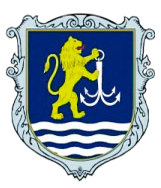EVALUATION OF FREIGHT CUSTOMS COMPLEXES’ SERVICE USAGE EXPEDIENCE IN INTERNATIONAL ROAD TRANSPORTATION
Abstract
Introduction. Freight customs complexes’ operation expedience in Ukraine as a whole as well as in a separate region depends on the demand for customs and logistic services generated by entities engaged in foreign economic activities. Purpose. The purpose of the article is to analyze the use of freight customs complexes’ services in international road transportation. Results. The paper analyzes behavioral strategies pursued by subjects in the market for transportation services. Based on the research findings, it is found that the domestic market is characterized by a rapid transition from strategies focused on the cost of services, to understanding the need for quality service with a high degree of reliability. The authors conduct an expert assessment of stakeholders’ feedback on the experience of cooperation with freight customs complexes from the standpoint of customers’ needs. 676 specialists participated in the survey, including 160 consignees, 320 shippers, 74 customs brokers, 67 carriers, and 55 freight forwarders. We carried out the analysis of the stakeholders’ feedback on the experience of cooperation with freight customs complexes using mathematical statistics methods, the methods of primary data analysis and the variance analysis in the Statistica program. Conclusions. It is established that the enterprises that have experience of cooperation with freight customs complexes express a fairly high degree of satisfaction with the level of customs and logistics services. The data that the authors obtain in the analysis will make for the development of recommendations for Ukrainian customs authorities on interaction with infrastructure facilities and stakeholders of customs and logistics services.
Downloads
References
2. Коцан Н.Н. Територіальна організація митної діяльності України : монографія. РВВ «Вежа» 2005. 384 с.
3. Горб К.М. Проблеми територіальної організації митної справи України. Вісник Академії митної служби України. 2001. № 4. С. 72–76.
4. Дук Н.М. Теоретичні засади та досвід ГІС-моделювання митно-логістичної інфраструктури. Проблеми безперервної географічної освіти і картографії. 2014. № 20. С. 41–45.
5. Pourakbar M., Zuidwijk R.A. The role of customs in securing containerized global supply chains. European Journal of Operational Research. 2018. № 271(1). pp. 331–340. doi.org/10.1016/j.ejor.2018.05.012
6. Elliott D., Bonsignori C. The influence of customs capabilities and express delivery on trade flows. Journal of Air Transport Management. 2019. № 74. pp. 54–71. doi.org/10.1016/j.jairtraman.2018.09.007
7. Urciuoli L., Hintsa J., Ahokas J. Drivers and barriers affecting usage of e-Customs – A global survey with customs administrations using multivariate analysis techniques. Government Information Quarterly. 2013. № 30(4). pp. 473–485. doi.org/10.1016/j.giq.2013.06.001
8. Henningsson S., Zinner Henriksen H. Inscription of behaviour and flexible interpretation in Information Infrastructures: The case of European e-Customs. The Journal of Strategic Information Systems. 2011. № 20(4). pp. 355–372. doi.org/10.1016/j.jsis.2011.05.003
9. Raus M., Flugge B., Boutellier R. Electronic customs innovation: An improvement of governmental infrastructures. Government Information Quarterly. 2009. № 26(2). pp. 246–256. doi.org/10.1016/j.giq.2008.11.008
10. Morales-Fusco P., Saurí S., Lekka A.-M., Karousos I. Assessing Customs Performance in the Mediterranean Ports. KPI Selection and Best Practices Identification as Part of the MEDNET Project. Transportation Research Procedia. 2016. № 18, pp. 374–383. doi.org/10.1016/j.trpro.2016.12.049
11. Biljan J., Trajkov A. Risk Management and Customs Performance Improvements: The Case of the Republic of Macedonia. Procedia – Social and Behavioral Sciences. 2012. № 44. pp. 301-313. doi.org/10.1016/j.sbspro.2012.05.033
12. Volpe Martincus C., Carballo J., Graziano A. Customs. Journal of International Economics. 2015. № 96(1). pp. 119–137. doi.org/10.1016/j.jinteco.2015.01.011
13. Luzhanska N.O, Kravchenya I.M., Lebid I.H. Methodology for the Multi-Criteria Efficiency Assessment of Cargo Customs Complexes. World Science. 2021. № 1(62). doi.org/10.31435/rsglobal_ws/30012021/7405
14. Luzhanska N., Lebid I., Kotsiuk O., Kravchenya I., Demchenko Y. The influence of customs and logistics service efficiency on cargo delivery time. Proceedings of the National Aviation University. 2019. № 3(80). pp. 78–91. doi.org/10.18372/2306-1472.80.14277
15. Statistica 13.3. Computer program. Serial number JRR709H998119TE-A.





